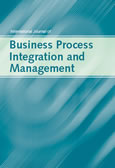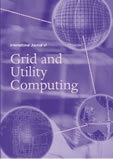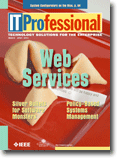Procedures and Important Dates
Contest Procedure and Rules
- Open problem contest. The teams can choose any context to demonstrate the capacities of SOA and cloud computing. In the past contest, the contest teams have worked on a wide range of applications, from public safety, information management and retrieval, eHealth, eLearning, eGovernment, supply chain management and so on. We are expecting the contest participants to explore the new frontiers of SOA and cloud computing techniques.
- Two categories. The Service Cup is open to both university students and professors to demonstrate results from course projects or research projects, and the practitioners from industry to show case their products or development projects.
- Two phases. All submissions include a technical papers and an online demonstration. All submissions will be subject to academic peer review. In the general selection, the papers and the demonstration systems are evaluated by the Program Committee. About 10 teams will be invited to the venue of ICWS 2011 for final competition. The final competition includes a session of presentation and a session of demonstration. The on-site evaluation committee is composed by the PC members and professional attendants of ICWS. In the presentation session, each team has 30 minutes for presentation and questions. In the demonstration session, the teams demo their systems to the evaluation committee, as well as public audiences.
- Technical paper. Each team should submit a technical paper to address the problem and the solution. The requirements to the technical paper are as a conference paper. It should be limited to 8 pages and follows the IEEE Computer Society Press Proceedings Author Guidelines. Some suggested contents can be problem background, modeling analysis, technical explanation, result analysis, SOA methodology, innovation and a web site that hosts a live demonstration.
- Demo system. Each team should build an online demonstration system. There is no special preference on particular software platforms. Participants can choose their preferred software platforms for the contest. The system should reflect the principles and key techniques presented in the technical paper. The system should be accessible using a common Web browser. From 2011, we are glad to offer free resources offered by Prof. Qianxiang Wang from Peking University to host the participants' systems through out the whole contest term, from the preparation stage to the final contest stage. If you plan to use this service, please check this page and contact wqx@pku.edu.cn for any further questions. We plan to host the finalists' systems after the contest.
- Team structure. A Service Computing Contest team is made of at most 5 full-time undergraduate/graduate students, a professor as an advisor. A Service Industry Contest team has no constrains on team structure.
Contest Awards
- Each team on the final list will receive a framed certificate presented by the IEEE Computer Society Technical Committee on Services Computing.
- The teams on the final list will publish their papers in the Proceedings of the 2011 IEEE Congress on Services (SERVICES 2011). One registration fee is required. A second registration is free.
- Some of the finalist teams will receive travel award (no more than $500) to go to the competition venue.
- $1,500 cash award will be shared among the winning teams.
- The winning teams can choose to host their systems in our free service host site after the contest.
Double Blind Review
All submissions will be subject to academic peer review by the Contest Programme Committee. To preserve the integrity of the peer-review process, we use double blind review process - the reviewers will not see the names of the authors, neither do the authors know their reviewers. To allow for anonymous reviewing, please replace the authors line in your submission by the unique tracking number assigned after the submission of the summary form. Please avoid identifying self-references - replace phrases like "We have show in [n]" by "in [n] it has been shown ...".
Evaluation Criteria
General selection:
- Paper contents (50%): the novelty of the application, the technical depth, the presentation of the paper.
-
- Demo System (50%): accessibility via Internet, interpretation of the principles, the technical depth.
Final competition (on the conference sites):
- Oral presentation (30%): significance of application, clarity of the principles, technical depth, presentation skills.
- Paper contents (30%): as above.
- Demonstration (30%): interpretation of the principles, the technical depth.
- Poster (10%): interpretation of the principles, aesthetic impressiveness.










